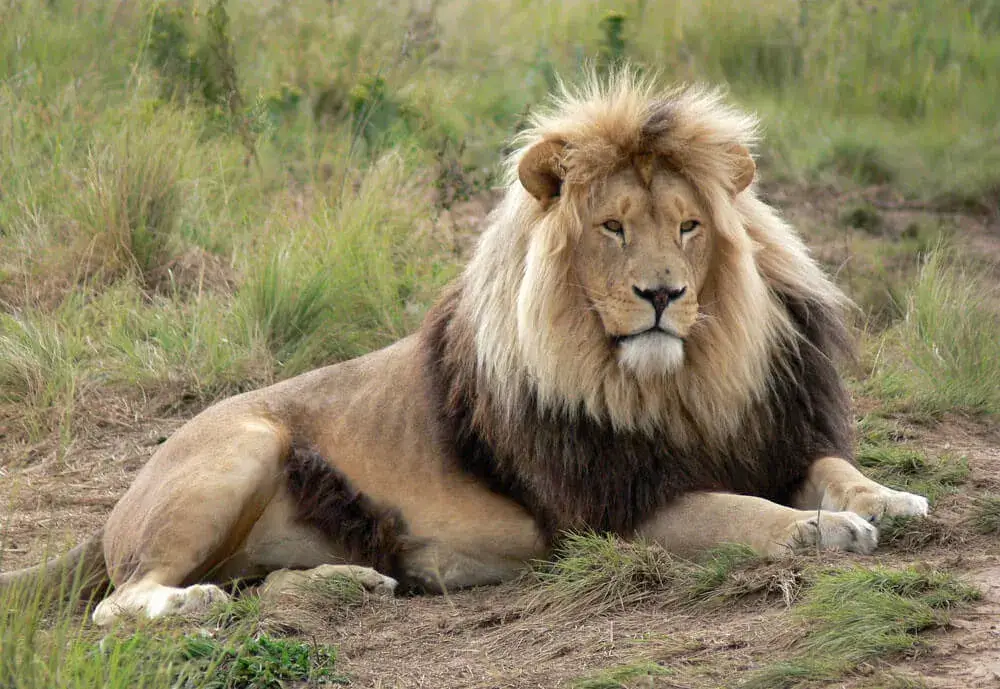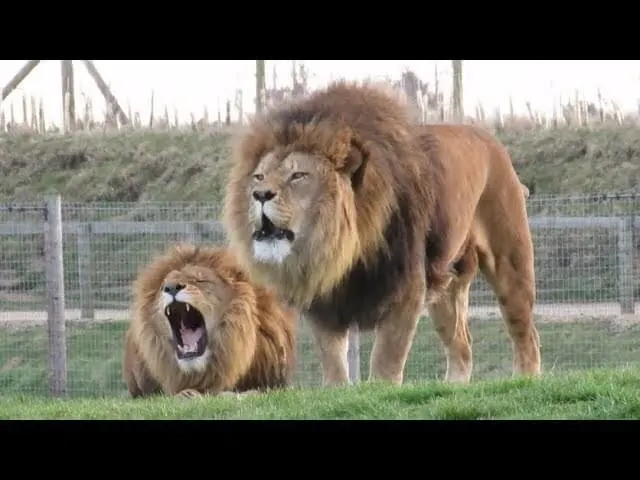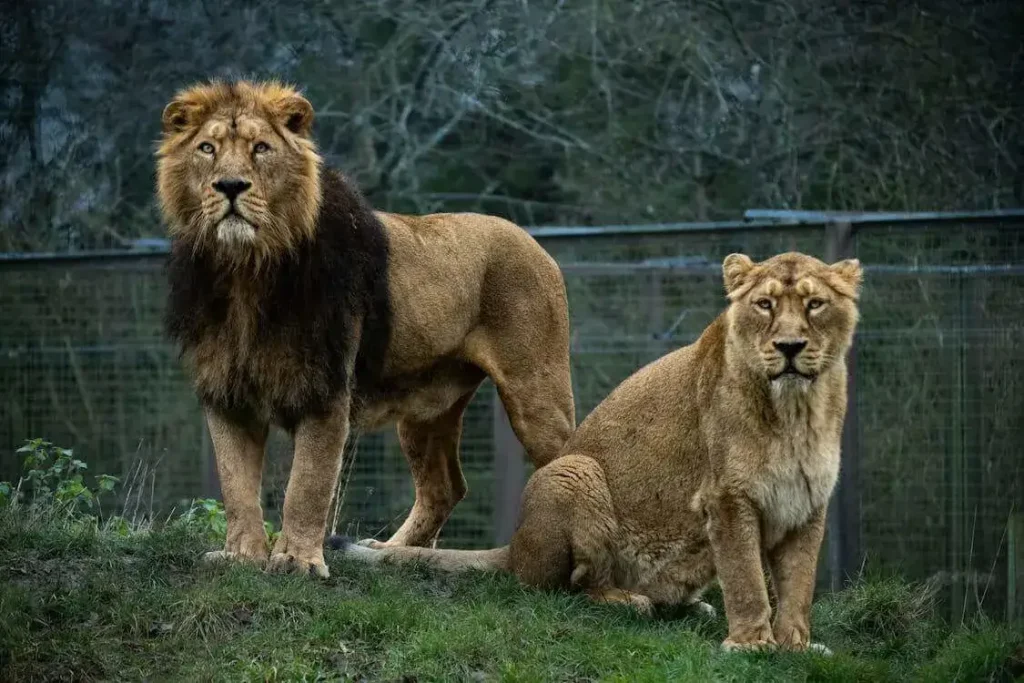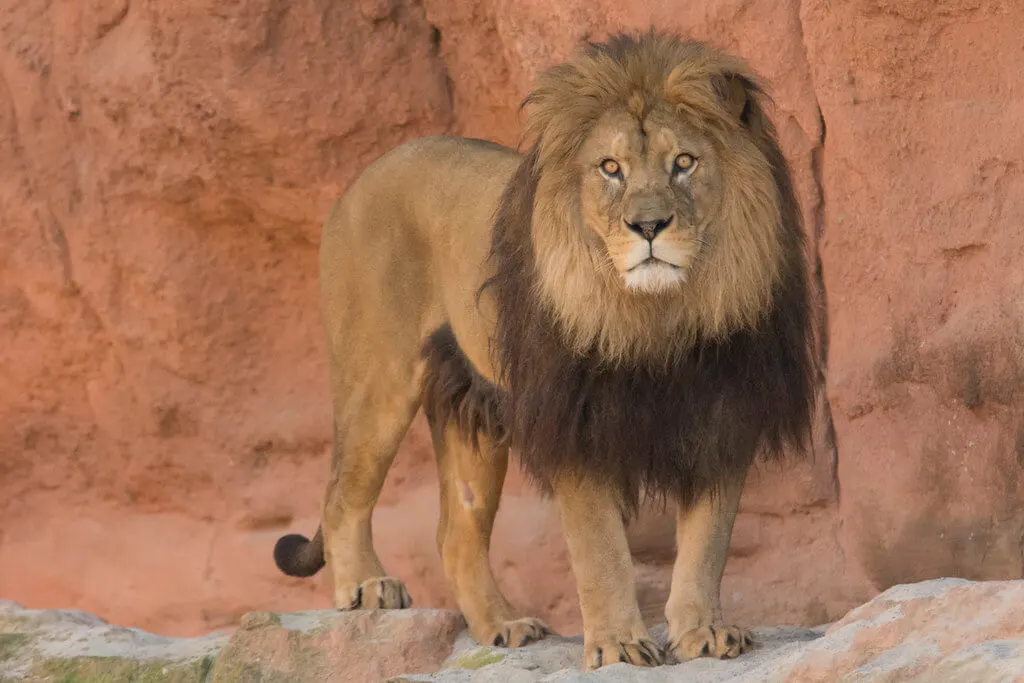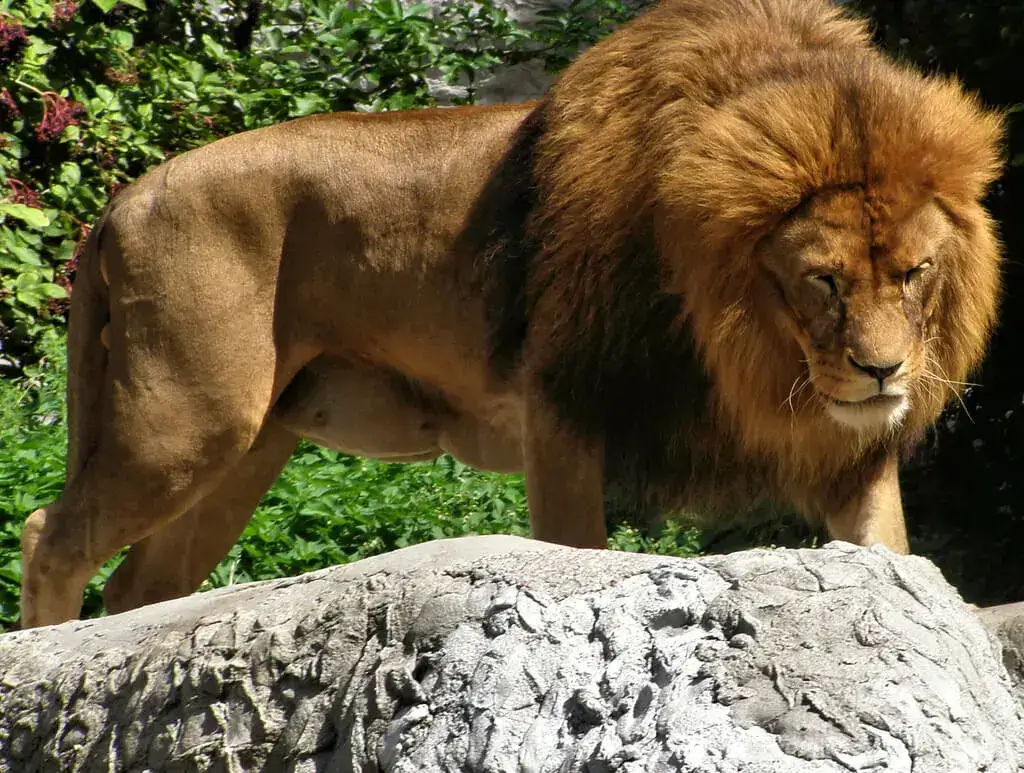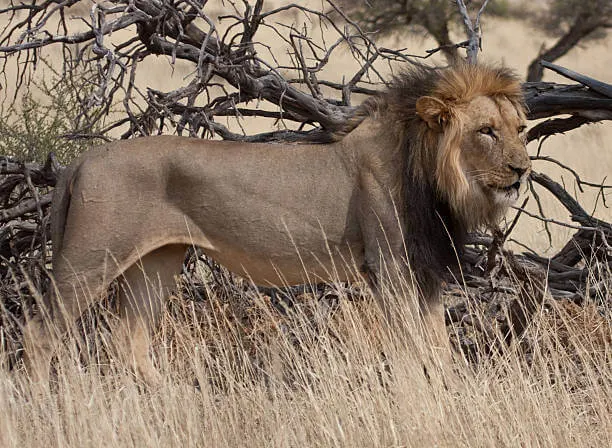🦁 African Lion – The Majestic King of the Savannah
🌍 Introduction
The African Lion stands as one of the most iconic animals on Earth. Known for its golden mane and commanding presence, this powerful big cat symbolizes courage, strength, and unity. Found across parts of Sub-Saharan Africa, African lions play a critical role in their ecosystems and remain a cherished symbol in cultures worldwide.
📍 Habitat and Distribution
African lions (Panthera leo) are native to the grasslands, savannahs, and open woodlands of Africa. Major populations exist in:
- Kenya and Tanzania (Serengeti and Masai Mara)
- South Africa (Kruger National Park)
- Botswana (Okavango Delta)
- Namibia and Zimbabwe
They prefer habitats where prey is abundant and open spaces allow for strategic hunting.
🧬 Physical Characteristics
African lions are easily recognizable by their impressive appearance:
- Size: Males can reach up to 10 feet (3 meters) in length, including the tail
- Weight: Males: 330–550 lbs, Females: 260–400 lbs
- Color: Ranges from light buff to yellowish-brown
- Mane: Male lions grow dark, thick manes that get fuller with age
Their muscular build and deep chest help them take down large prey with power and agility.
👨👩👧👦 Social Life and Behavior
African lions are the only big cats that live in structured social groups called prides:
- Prides typically include 3–4 males, 5–10 females, and their cubs
- Females form the core of the pride and often remain together for life
- Males may defend and lead a pride for 2–4 years before being challenged by newcomers
Their cooperative nature makes lions exceptional hunters and caretakers.
🥩 Diet and Hunting
African lions are apex predators with a carnivorous diet:
- Main prey includes zebras, wildebeest, antelopes, and buffalo
- Female lions do most of the hunting, often working in teams to outsmart prey
- Males usually eat first and guard the kill
They rely on stealth and power rather than speed, often hunting at night or during cooler parts of the day.
🦁 Reproduction and Cubs
Lionesses typically give birth to 2–4 cubs after a gestation period of about 110 days.
- Cubs are hidden for the first 6–8 weeks of life
- All lionesses in a pride help raise and protect each other’s cubs
- Cubs begin learning to hunt by 6 months, but rely on adults for food for over a year
This shared parenting increases cub survival and strengthens social bonds.
🩺 Threats and Conservation
Though fierce and resilient, African lions face growing threats:
- ⚠️ Habitat loss from agriculture and human development
- 🧍♂️ Human-wildlife conflict over livestock predation
- 🏹 Illegal hunting and poaching
Conservation efforts include:
- 🌍 Protected reserves and national parks
- 📚 Community education and engagement
- 🛡️ Anti-poaching patrols and tracking programs
The African lion is currently listed as Vulnerable by the IUCN.
🧑🤝🧑 Lions and Human Culture
Lions hold a special place in global cultures:
- 🇪🇬 Revered in ancient Egypt as a symbol of protection and royalty
- 🎬 Featured in stories, films, and folklore, including *The Lion King*
- 🏛️ Emblems of strength and courage on national flags and coats of arms
Responsible tourism supports lion conservation while offering people the chance to see these majestic animals in the wild.
🎉 Fun Facts About African Lions
- 🗣️ A lion’s roar can be heard from up to 5 miles (8 km) away!
- 🌙 Lions rest up to 20 hours per day to conserve energy
- 👃 Each lion has a unique scent, used to mark territory
- 🧭 Lions can run up to 50 mph (80 km/h) in short bursts
❓ Frequently Asked Questions
Q1: Where do African lions live?
A: They live across Sub-Saharan Africa, mainly in savannahs, grasslands, and open woodlands.
Q2: What do lions eat?
A: Their diet includes large herbivores such as zebras, buffalo, and antelopes.
Q3: How long do lions live?
A: In the wild, lions typically live 10–14 years; in captivity, they can live over 20 years.
Q4: Are lions endangered?
A: African lions are classified as Vulnerable due to habitat loss and other human-related threats.
Q5: Do lions live in jungles?
A: No. Despite the nickname “King of the Jungle,” lions prefer open habitats like grasslands and savannahs.
✅ Conclusion
The African Lion remains one of the most powerful and respected animals on the planet. From their roaring presence to their family-oriented social lives, these big cats are integral to both their ecosystems and human imaginations. Protecting lions means preserving balance in nature and honoring one of Earth’s most awe-inspiring creatures.
